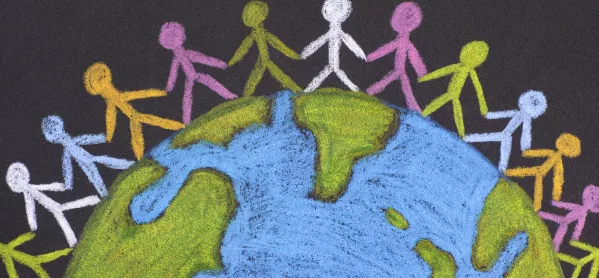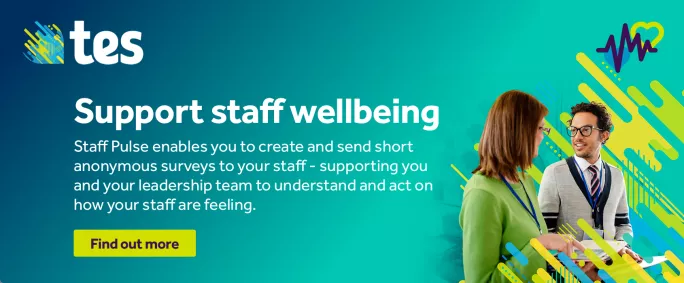- Home
- How making global connections helps schools in a crisis
How making global connections helps schools in a crisis

The concept of a group of organisations working collaboratively is nothing new.
In 1990, Peter Senge first established the idea of learning communities, where “new and expansive patterns of thinking are nurtured and collective aspiration is set free”.
Since then the way in which we use technology has evolved on a dramatic scale. We can now connect with a global community who can question, explore and learn together to enhance the impact of what we do in our classrooms.
I work with educators from across different schools, contexts and countries, and have made it a priority to establish virtual learning communities. Before lockdown hit, we’d already created connections on a global scale, so we knew the benefits and understood the potential.
This approach has been effective in overcoming professional isolation and developing a collaborative community spirit, connecting colleagues from Europe, Asia and North America to share good practice and collaborate on initiatives such as engaging readers and promoting outdoor learning.
Building learning communities
Having already set about building these learning communities, when lockdown brought about school closures, our global network was equipped to build on our established practices. We developed innovative ways to support and connect leaders, teachers and students.
Directing how our leaders, teachers, students and parents would be supported during this crisis was key. The issues were wide, varied and centred a great deal around logistics, technology, communication and promoting a sense of calm and reassurance.
We were unanimous about what we needed most in this time of crisis: connection on a human and professional level. By adding further layers to our existing learning communities and online platforms, we were able to bring professionals together in order to connect, to share, to learn and to support.
Our weekly video meets, which put names to faces and helped to forge relationships, also sparked valuable discussions.
We shared ideas around the practical implications of synchronous and asynchronous online learning, as well as timetables from different school settings.
We also collaborated on plans to support confidence with using technology tools, emotional wellbeing and establishing professional development through online class “visits” on the virtual environment.
We established an online platform for teachers to connect with others working in the same subjects or year groups - a place where they could share resources and online video lessons.
We have since consolidated this platform into a curriculum sharing space for our educators to contribute and access according to subjects, year levels and curriculum models of practice.
The impact of the coronavirus
To support our students and parents, we made sure that events that already existed on the school calendar continued to take place, adapted to the online environment. These events boosted morale and school spirit.
Stringent lockdown measures meant children were confined in their homes - often without a private garden - for at least seven weeks before they were allowed to even venture outdoors.
To make sure that families in lockdown were engaged in fun activities and avoided too much screen time over the Easter holidays, we created Easter challenges, including “extreme” reading and talent competitions.
We also used our collaboration with WWF UK to organise online summits and webinars for students and teachers to connect with a common learning purpose, and developed free and fun summer courses that promote project-based outdoor learning to continue to support our learners and parents throughout the upcoming summer holiday break.
Embracing new practices
As we return to the new normal, I hope that it does not mean returning to the old normal. John Hattie urges us to “build back better” so that we take on board the new and adapted learning initiatives, rather than simply putting them away once we have tried them out.
We want to embrace the new methods and to consider how they can be added to our teaching and learning repertoire. This social experiment that no one would ever have wished did happen - and we want to use it as an opportunity to improve.
For me, the initiatives implemented as a consequence of the pandemic will continue as part of what we do and provide for our learning teams. School closures have ultimately only strengthened the professional learning network we have.
Oanh Crouch is director of education at Globeducate and tweets at @OanhCrouch
Keep reading for just £1 per month
You've reached your limit of free articles this month. Subscribe for £1 per month for three months and get:
- Unlimited access to all Tes magazine content
- Exclusive subscriber-only stories
- Award-winning email newsletters
